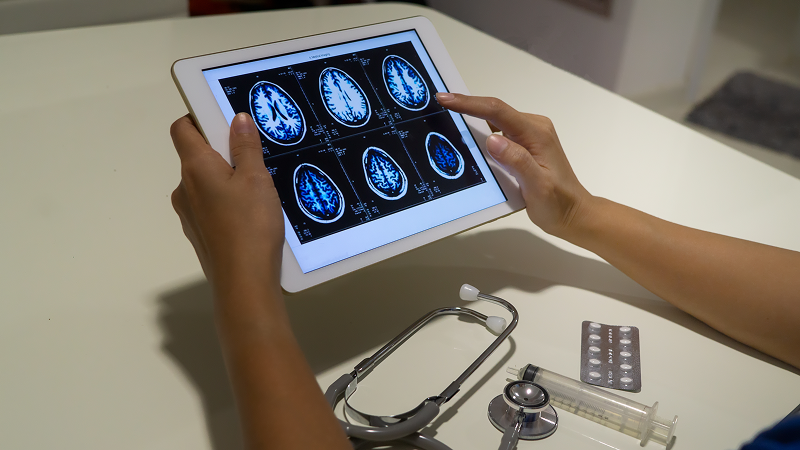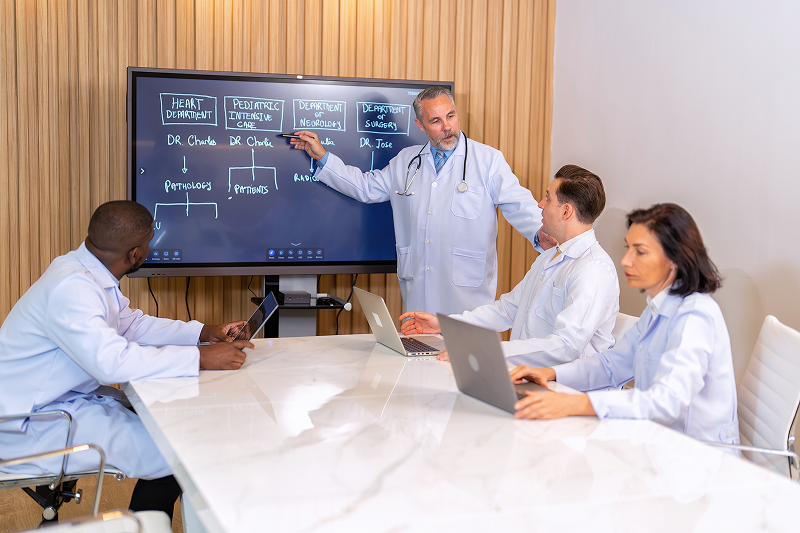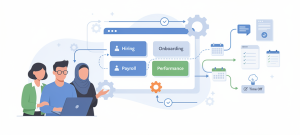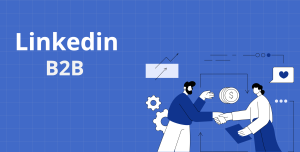Digital Transformation in Healthcare: Challenges and Tools

Digital transformation is radically changing the healthcare sector. Once considered traditional and slow to evolve, it is now at the heart of a technological revolution. Artificial intelligence, robotics, telemedicine, and connected devices are redefining how care is delivered, analyzed, and coordinated.
But this shift is not just about technology; it also involves deep ethical, human, and organizational challenges. How can medical data remain secure? How can human relationships be preserved in an increasingly automated environment? And, above all, how can healthcare teams be trained to use these new technologies effectively?
1. Medical Data: The Driving Force of Transformation
Data has become the beating heart of modern healthcare. By centralizing and analyzing massive patient information, healthcare providers can:
- Detect diseases earlier,
- Personalize treatments,
- Anticipate epidemic risks,
- Optimize hospital management.
AI systems such as DeepMind Health, PathAI, and Owkin can analyze thousands of medical images in record time, enabling faster detection of cancers or cardiovascular diseases. These tools do not replace physicians; rather, they assist them, giving more time for direct patient care.cardiaques.
Ces avancées ne remplacent pas les médecins elles les assistent, leur donnant plus de temps pour se concentrer sur le soin humain.
👉 Related reading : The role of RPA in transforming administrative services

2. Better Coordination Through Interoperability
The biggest challenge of digital healthcare is not just technical it is organizational. Hospitals, clinics, and laboratories need to communicate smoothly and securely.
Electronic health records (EHRs) are a key step forward, but their efficiency depends on interoperability. In France, the Mon Espace Santé project aims to provide every citizen with a centralized, shareable medical record. Across Europe, harmonization initiatives aim to ensure that healthcare data can be exchanged without compromising security.
📌 For a structured approach : Creating a clear and complete requirements specification
3. Artificial Intelligence in Diagnosis and Prevention
AI is already omnipresent in healthcare. Tools like Aidoc (radiology) or Ibex Medical Analytics (pathology) accelerate image analysis and improve diagnostic accuracy.
Its potential goes further:
- Predictive algorithms anticipate relapses or post-operative complications,
- Medical chatbots, like those used in Australia, provide initial triage for patients,
- AI-driven monitoring systems, connected to medical devices, adapt treatments in real time.
💡 Example: Some French hospitals are already using intelligent monitoring systems in ICUs to automatically detect vital anomalies.
4. Cybersecurity: A Critical Challenge for Digital Healthcare
Massive digitalization increases the risk of cyberattacks. In 2023, over 25 European hospitals were targeted by ransomware, temporarily paralyzing their systems.
To address this, it is essential to:
- Store data on sovereign servers,
- Use certified healthcare cloud solutions (like Infomaniak Health Cloud),
- Strengthen cybersecurity training for medical staff.
Every link in the chain matters: from physicians to IT teams, vigilance must be collective.
5. Training Professionals: The Human Link in Transformation
Digital transformation will only succeed if users doctors, nurses, administrators are supported. Technology evolves quickly, but healthcare staff must keep pace with digital skills.
Training initiatives include:
- Universities and engineering schools offering e-health master’s programs,
- Hospitals developing digital simulation centers,
- Startups providing microlearning modules for everyday tools.
The key is to place humans at the center of technology
👉 Deepen the topic : OKRs for managing your team

6. Inspiring Examples of Digital Transformation
- Hôpital Foch (France): implemented an AI system for surgical planning, reducing waiting times by 30%.
- CHUV (Switzerland): uses robotics to automate medication distribution and prevent human errors.
- Mayo Clinic (USA): integrates genomic data into personalized treatments using AI.
These successes show that well-managed digital transformation can enhance care quality while reducing costs.
7. The Future of Connected and Digital Healthcare
By 2035, medicine will become increasingly predictive and personalized. Biometric sensors, surgical augmented reality, digital twins, and generative AI will enable continuous patient monitoring.
Yet the essential question remains: how can technology remain a tool in service of human care? Digital healthcare must support the patient-doctor relationship, not replace it.
8. DevUps and Digital Healthcare: An Integrated Vision
At DevUps, we support healthcare actors in their 360° digital transformation. Our interventions include:
- Deploying secure cloud solutions,
- Automating administrative processes via RPA,
- Developing patient-facing platforms,
- Integrating interoperable systems between hospitals and laboratories.
Our approach is built on three principles: security, efficiency, and human-centered support..
👉 Discover our services: : DevUps – Services
Conclusion
Digital transformation in healthcare opens immense opportunities: better care quality, optimized coordination, and broader access to preventive care. But it also requires vigilance in security, staff training, and ethics.
Public and private actors must work together toward connected, ethical, and inclusive healthcare. At DevUps, we believe in technology serving human well-being, where innovation and humanity go hand in hand.
👉 Contact DevUps to digitally transform your healthcare ecosystem with confidence .
Latest Insights and Tips
Start building your digital ecosystem today. Get in touch with our team to discuss your project.







